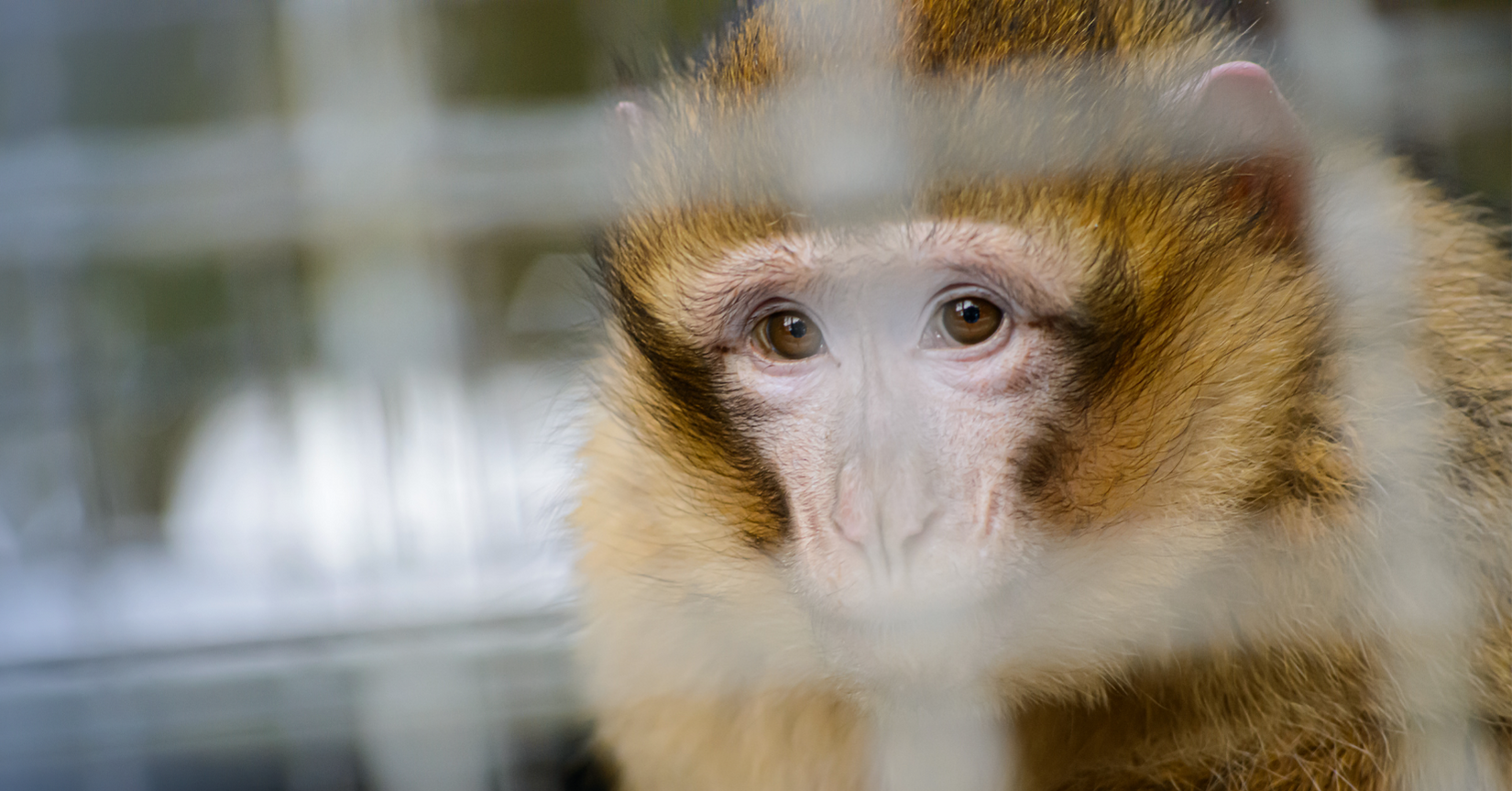
It’s Harvard Animal Law Week and, as proud partners of Harvard’s Animal Law & Policy Clinic, it’s a privilege to shout out Harvard’s efforts to help animals who are trapped in laboratories.
On our and the Animal Legal Defense Fund’s behalf – and, even more importantly, on behalf of commodified and exploited other-than-human animals – the Harvard Law & Policy Clinic is currently pursuing two important lawsuits against the U.S. government:
First: We are working to hold the USDA accountable for allowing (if not outright empowering) researchers to deprive nonhuman primates of statutorily-prescribed care.
Since 1985, the Animal Welfare Act (“AWA”) – the only federal law that considers the “welfare” of animals used for research – has required that laboratories meet “minimum requirements . . . to promote the psychological well-being of primates.” Six years later (in 1991), the USDA finally established a regulation to implement this legislative directive, charging research facilities with “develop[ing], document[ing], and follow[ing] an appropriate plan for environment enhancement adequate to promote the psychological well-being of nonhuman primates” . . . only the regulation was and remains effectively hollow. This means that, almost 40 years after the law’s amendment, the USDA is still evading the law’s intent.
In a sentence, the USDA’s regulation remains so vague that it cannot be enforced; or, as explained in court papers: “it lacks any enforceable definition of how to evaluate if a plan is actually effectively designed or implemented in a way that promotes the primates’ psychological well-being.”
And, all of the USDA’s disingenuous, repetitive claims that the regulation is “sufficient” do not change this, either legally or actually:
- The USDA (1) does not require any demonstration of psychological well-being “beyond showing that minimum physical enrichments have been made”, and (2) requires only that laboratories “develop plans”, not that the plans’ implementations be verified.
- Modern primate researchers themselves report that monkeys become “mentally deranged by their cage environments”, “express behaviors that suggest psychological trauma”, and “go insane with boredom” . . . at the same time that the animal research industry continues to “normalize[] the idea that their caged primates are healthy”: “‘They’ll tell you laboratory primates get “environmental enrichment,” like a rubber ball stuffed with a treat, a toy dangling from a cage door, a mirror to play with, or snacks scattered on the cage floor. I suppose they get exercise, too. For glutes and biceps, they can rock back and forth or rattle their cage doors. For a cardio workout, they can pace in circles or slam themselves against the cage walls.’”
In March of last year, we won (!) – the court agreeing with us that the USDA’s regulations are insufficient – but the U.S. government’s appeal has kept the case going, and we expect oral arguments later this year.
Second: We are endeavoring to force the USDA to inspect research facilities, as mandated by law.
To enforce the AWA’s minimal standards for animal welfare, the USDA is charged with inspecting each registered research facility annually. But, it’s not doing so. In fact, the USDA is failing to perform its prescribed job both through inaction – i.e., not undertaking required inspections – and through action – by outsourcing inspections to a private, animal research industry group called AAALAC International. In other words, in direct opposition to the AWA’s mandate and the Congressional intent behind it, the USDA has decided not to even pretend to police the animal research industry and to let the animal research industry flagrantly “police” itself.
All of the background about this suit can be found in Rise’s latest investigative report.
In support of these two efforts, please join us in raising our figurative glasses to the Harvard Animal Law & Policy Clinic, an ally that we are so very proud to work with and with which we are eager to continue taking the U.S. government to task.
On behalf of the other-than-human victims of the animal research industry, and those of us who are fighting for their liberation, cheers to you, Harvard.